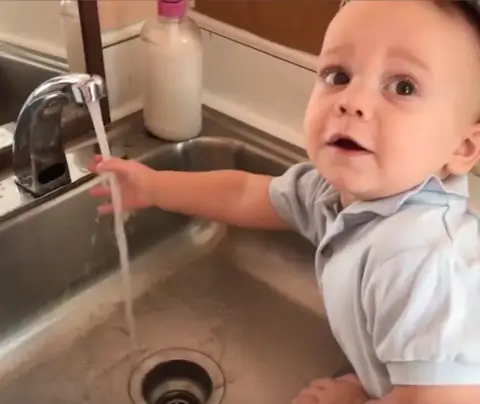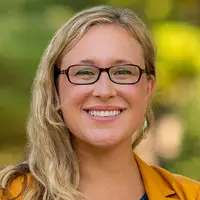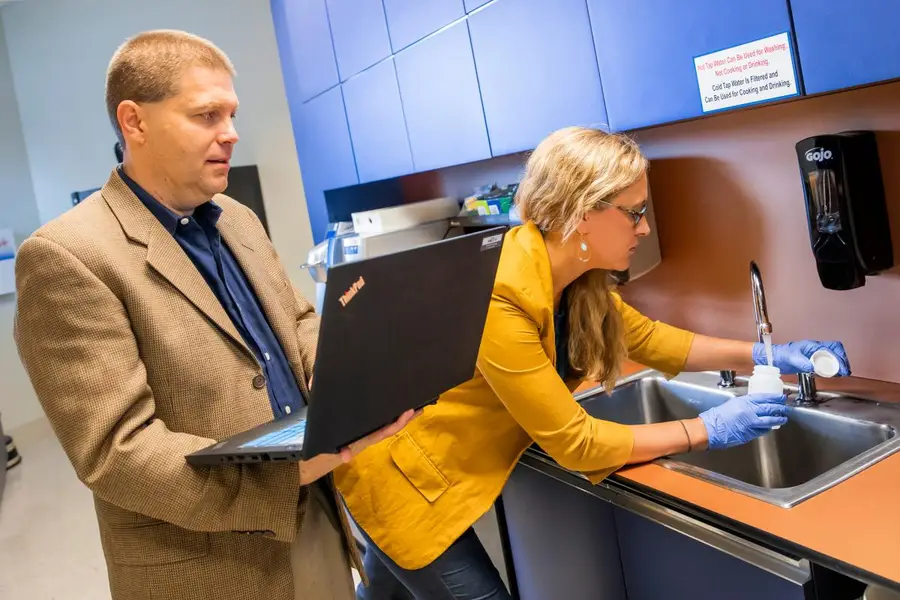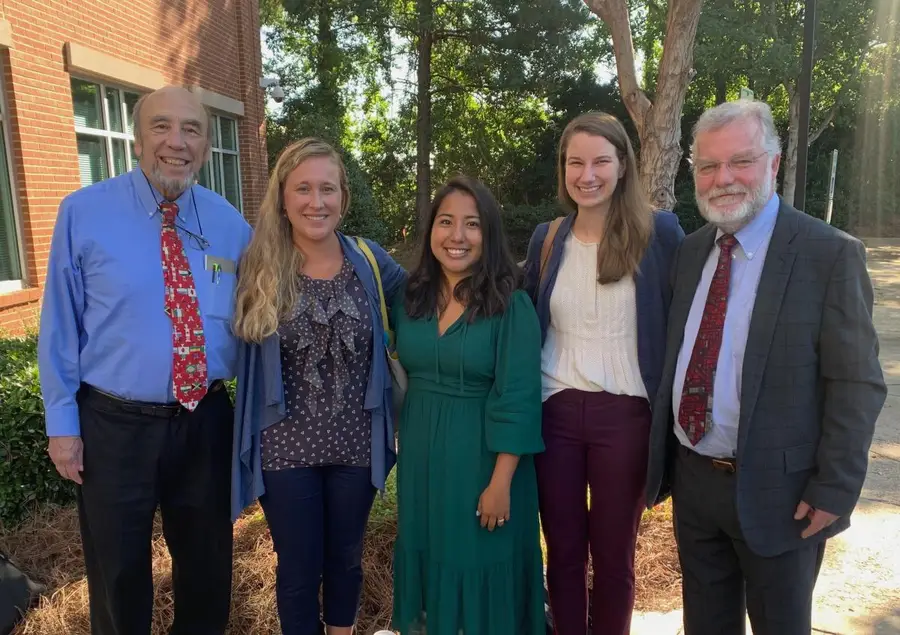Redmon (right) and colleague Keith Levine collect a sample
The approach includes the use of mail-out test kits, an online enrollment and reporting portal, and most importantly, training and communication support. Coincidentally, the testing approach is also ideal during the COVID-19 pandemic. Using this community-based approach allows child care and school administrators to understand the problem, communicate with staff, parents, and children, and take collective action to make water quality improvements.
“Teachers and administrators in North Carolina's child care centers deserve enormous gratitude for the ways they go the extra mile for young children every day,” states Vikki Crouse, Policy Analyst at NC Child. “They understood immediately that infants and young children are uniquely sensitive to the long-term, harmful impacts of lead exposure. Their willingness to show up for families and young kids — as teachers, as caregivers, and now as citizen scientists — inspires us all to work harder for kids each day."
With federal grant funding since April 2020, the program is currently testing and providing communication support for needed mitigation in all open licensed North Carolina child care centers and elementary schools with Head Start programs. When lead is identified, there are often simple options for getting it out of taps, including the use of no-cost clean water habits along with low-cost solutions such as the replacement of lead-contaminated faucets or the installation and maintenance of filtration systems.
“The Clean Water for Carolina Kids collaboration has been critical to extending the reach of environmental health programs working against limited resources and diminished public trust,” said Ed Norman, the Program Manager for the NC Childhood Lead Poisoning Prevention Program. “We continue to improve the safety of drinking water throughout our state by eliminating faucets and plumbing that leach dangerous amounts of toxic lead into water. Our partnership has improved the health outcomes of thousands of North Carolinians beginning in childhood but lasting a lifetime.”
Redmon (second from left) poses with other key members of the partnership
Although the described approach does not solve the United States’ aging infrastructure crisis — which is complex and requires significant financial investment to resolve — it prevents childhood exposure to lead in drinking and cooking water in a timely manner, before today’s children are tomorrow’s adults. By focusing on prevention, the partnership will protect the 230,000 children ages six and under in child care centers and schools in North Carolina. A net economic benefit of $6.4 million in the first six years of the program’s implementation is expected from avoided health care costs and increased lifetime earnings.
“We can protect children from lead hazards, as this partnership demonstrates, and can do so without breaking the bank. We hope this effort will be replicated in other states,” states Michelle B. Nowlin, Clinical Professor of Law and Co-Director of the Duke Environmental Law and Policy Clinic.
An expansion of the program is planned in 2021 for voluntary testing of family child care homes and elementary schools, with enrollment prioritized based on financial need, racial equity and building age. While North Carolina is the first state in the U.S. to use this novel approach to identify lead in child care water and schools, the program is scalable as a national model to advance efforts to eliminate childhood lead exposure in other states, child care centers, schools, and homes.
The partnership was selected from a pool of high-potential nominees from around the world that strive to address seemingly intractable environmental problems ranging from coastal and marine plastics pollution, using urban forestry projects to offset emissions from university travel, to structuring a multi-state carbon trading scheme for the transportation sector.
The Roy Award will be presented to the partners during a virtual celebration hosted by the Harvard Kennedy School later this fall.
RTI International is an independent scientific research institute dedicated to improving the human condition. Our vision is to address the world's most critical problems with technical and science-based solutions in pursuit of a better future. Clients rely on us to answer questions that demand an objective and multidisciplinary approach—one that integrates expertise across social, statistical, data, and laboratory sciences, engineering, and other technical disciplines to solve the world’s most challenging problems.
For more information, visit www.rti.org.





